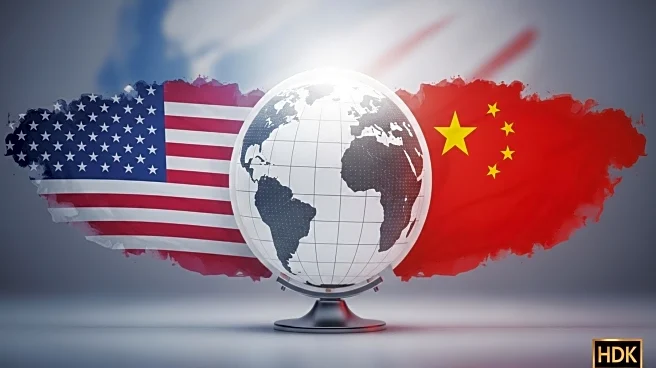What's Happening?
U.S. and Chinese officials are meeting in Madrid to address ongoing trade issues and the impending deadline for TikTok's divestiture. This marks the fourth meeting in four months between U.S. Treasury Secretary Scott Bessent, U.S. Trade Representative Jamieson Greer, and Chinese Vice Premier He Lifeng. The discussions aim to prevent the collapse of the U.S.-China trade relationship, which has been strained by tariffs imposed under President Trump's administration. The talks also include discussions on the U.S. demand for G-7 and European allies to impose tariffs on China to curb its purchase of Russian oil. A significant focus is on the deadline for TikTok's Chinese owner, ByteDance, to divest its U.S. operations by September 17, or face a shutdown. Although a deal is not expected, an extension of the deadline is likely. This meeting follows previous discussions in Geneva, London, and Stockholm, where a 90-day trade truce was agreed upon, reducing retaliatory tariffs and resuming the flow of rare-earth minerals from China to the U.S.
Why It's Important?
The outcome of these talks holds significant implications for U.S.-China trade relations and the global economy. The potential extension of the TikTok divestiture deadline highlights ongoing national security concerns and the complexities of international business operations. The discussions also reflect broader geopolitical tensions, as the U.S. seeks to align its allies against China's economic practices. The resolution of these issues could impact various sectors, including technology, agriculture, and manufacturing, affecting stakeholders ranging from multinational corporations to local farmers. The talks are crucial for maintaining economic stability and addressing security concerns, with potential repercussions for global trade dynamics.
What's Next?
Future developments may include a potential meeting between President Trump and Chinese President Xi Jinping, possibly at the Asia Pacific Economic Cooperation summit in Seoul. This meeting could lead to more substantial agreements, such as resolving national security concerns over TikTok and adjusting tariffs on Chinese goods. The ongoing negotiations may also influence future U.S. trade policies and international relations, as both countries navigate complex economic and political landscapes.










